Facebook chatbots are computer programs that simulate human conversation. They automate tasks and make it easier for people to get information from businesses. You can use them to automate customer service or sales tasks or even have a little fun. Facebook Messenger chatbots are powered by artificial intelligence, which means they can understand natural language and respond appropriately.
Types of Chatbots
There are two main types of chatbots: rule-based and AI-based. Rule-based chatbots follow defined rules, while AI-based chatbots use artificial intelligence to understand the user's intent and respond accordingly.
Rule-based chatbots are easier to build and require less maintenance, but they are less flexible than AI-based chatbots. AI-based chatbots can provide a more natural and human-like conversation, but they are more challenging to build and require more maintenance.
Which type of chatbot is right for you will depend on your needs. A rule-based chatbot will likely suffice if you need a chatbot to handle simple tasks like customer service or sales inquiries. However, an AI-based chatbot may be a better option if you need a chatbot to handle more complex conversations.

Tips to Make Your Chatbot Successful
No matter which type of chatbot you choose, you should keep a few things in mind to ensure your chatbot is successful. Make sure your chatbot can understand the user's intent - This is one of the most critical factors in ensuring your chatbot is successful. If your chatbot can't understand the user's intent, it won't provide a relevant response. Make sure your chatbot can keep the conversation going - Chatbots should be able to keep the conversation going until the user is satisfied. If your chatbot runs out of things to say, the user will likely be disappointed. Make sure your chatbot is relevant - Chatbots should be relevant to the user's needs. If your chatbot isn't appropriate, the user will likely not use it. Make sure your chatbot is engaging - Chatbots should be engaging to use them. If your chatbot is boring, users will likely not use it.
How Do Chatbots Work?
Chatbots use a combination of artificial intelligence and natural language processing to understand the user's intent and provide a relevant response. When a user sends a message to a chatbot, the chatbot analyzes the message to determine the user's intent. Once the chatbot understands the user's intent, it will respond accordingly. The chatbot will continue to analyze the user's messages and provide relevant responses until the conversation ends. A conversation could end because the user is satisfied with the chatbot's response or the chatbot has run out of things to say.
What Are the Benefits of Using Chatbots?
There are several benefits of using chatbots, including: Increased customer engagement - Chatbots can help you engage with your customers and keep them updated on your business. Improved customer service - Chatbots can provide customer service and support. Reduced costs - Chatbots can help you reduce the cost of providing customer service. Automated tasks - Chatbots can be used to automate tasks, such as sending out automated messages or reminders. Improved sales - Chatbots can be used to enhance your sales and marketing efforts. Increased leads - Chatbots can help you generate leads and increase your conversion rate. Improved customer satisfaction - Chatbots can help you improve customer satisfaction by providing them with the information they need.
How to Get Started with Chatbots?
If you're interested in using chatbots for your business, there are a few things you need to do: Choose a chatbot provider - There are several chatbot providers out there, so you'll need to choose one that's right for you. Create a chatbot - You'll need to create a chatbot and design it to meet your needs. Upload your chatbot - You'll need to upload your chatbot to a server so users can access it. Integrate your chatbot - You'll need to integrate your chatbot with your existing systems, such as your website or CRM. Deploy your chatbot - Once you've created and designed your chatbot, you'll need to deploy it to a server to be used by users.
Conclusion
Now that you know the basics of chatbots, you can start using them to improve your customer experience. If you follow these tips, you'll be on your way to creating a successful chatbot for your business. Once you've completed your chatbot, you can deploy it to a server and start using it right away.






















.png)



.svg)




